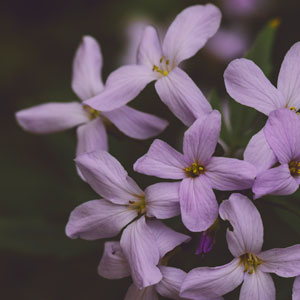

The 5 Bank Accounts Everyone Needs
Quick Summary
Sometimes, when I’m asked for financial advice, the best answer is something very straightforward. Managing money often comes down to building a good, solid foundation. It’s not a simple task but, with the help of these basic accounts, you can move toward financial success. All it takes is a little strategy, some careful planning and a trusted financial institution.

By Sharon Cook, SVP/Chief Marketing Officer, Mountain America Credit Union
What types of accounts are we talking about? Credit unions and banks offer a multitude of financial accounts—each one serving a different purpose and offering varying benefits. But these five, at minimum, should be considered for a healthy approach to financial growth.
-
A checking account—A basic checking account is the main place where income will be deposited and draws will be taken to pay for planned expenses. This primary money source should also allow you to transfer funds quickly and easily with a mobile app or online banking tool.
-
A retirement account—If your job has 401(k) benefit and offers matching contributions, enroll in it. The money goes straight from your paycheck into a retirement plan, pre-tax, where it can begin growing for retirement. You can't access a 401(k) before a certain age without being charged a penalty, which is an added incentive to deposit what you can and let it be.
If your employer doesn't offer a 401(k) benefit, consider opening a Traditional or Roth IRA at the financial institution of your choice. Traditional IRAs may give you an immediate tax benefit because the contributions are usually tax deductible. They grow tax-deferred until withdrawals begin in retirement. Roth IRA contributions are after-tax (taxes have already been assessed via your paycheck), which means they are not tax deductible. You can withdraw the money that you contributed at any time with no penalty.
Self-employed? You still have options. Try a Traditional or Roth IRA or look into a Solo 401(k).
Whichever option you choose, make sure you understand all the rules—things like contribution limits and required distributions. Meet with a trusted financial professional to get all the important details. -
A long-term savings account—Certificate accounts are perfect for longer-term goals, like a down payment on a home or saving for college, because you set aside the money for a set term (usually between six months and five years).
Since certificates have much higher dividend rates than typical savings accounts, your balance grows faster. They're also very affordable. Depending on your financial institution, a certificate account typically only requires a minimum balance of $500 or so. Some options, like a growth certificate at Mountain America, require as little as $5 to open and an automated deposit of at least $10 per month. Finally, certificates are flexible and low-maintenance. Simply make the deposit and then cash in on a virtually risk-free investment when they mature. -
A short-term savings account—High-yield savings accounts, or money market accounts, are one of the most basic and beneficial savings accounts to have in your financial strategy. With this type of account, you earn a higher dividend rate for deposits than with a traditional savings account. Be sure to check the account criteria to avoid service charges or fees.
-
An emergency account—An emergency account is a separate savings account (ideally, one with a high dividend rate) that can help keep you out of debt. This cash reserve covers unexpected expenses like insurance deductibles, living expenses during a job loss, or car and home repairs. Open an account where the money is available to you anytime.
Having multiple bank accounts may sound intimidating at first, but it could boost the earning power of your money. Once you sit down and look at your finances, strategize what money you can spend and what you can afford to let grow.